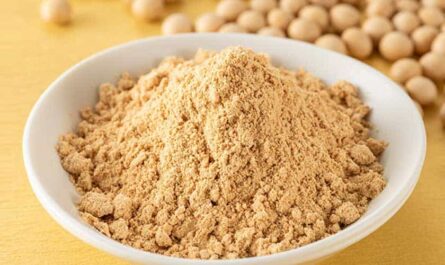The human gut microbiota plays an important role in overall health and wellbeing. Probiotics are live microorganisms that when consumed in adequate amounts provide health benefits. One such promising probiotic species is Bacillus coagulans. In this article, we explore the key aspects of this microorganism and its potential health benefits.
Taxonomy and Characteristics
B. coagulans forms central and non-motile spores which allow it to survive the acidic pH of the stomach. When it reaches the intestines, the spores germinate to the vegetative cellular form. An important characteristic of B. coagulans is its ability to form spores at temperatures around 37–50°C, which enables it to survive high temperatures encountered during food processing. Its genome contains genes involved in adaptation to stress and utilization of various carbohydrates as an energy source.
Gut Colonization and Stability
Bacillus Coagulans For a probiotic to provide health benefits, it needs to colonize the gut in adequate numbers. Studies have shown that B. coagulans persists and colonizes the intestinal tract after oral administration. Its spore-forming ability allows it withstand stomach acidity and bile salts in the intestines. The spores then germinate to the vegetative state and adhere to the intestinal mucosa, competing with pathogens for space and nutrients. They have been recovered from feces up to 30 days after supplementation. The ability of B. coagulans to withstand manufacturing processes and gastrointestinal transit makes it a stable and viable probiotic candidate.
Potential Health Benefits
Gastrointestinal Health
B. coagulans has demonstrated several benefits for gastrointestinal health. As a next-generation probiotic, it counters the deleterious effects of broad-spectrum antibiotics on gut microbiota. It inhibits the growth of harmful bacteria like Clostridium difficile which causes antibiotic-associated diarrhea. Studies also show its effectiveness against abdominal pain, constipation and IBS symptoms. B. coagulans may modulate immunity and regulatory cytokine levels to improve inflammatory bowel conditions.
Immune Function and Infection Fighting
The spore-forming ability of Bacillus Coagulans helps it transit the harsh stomach environment alive. After germination in the intestines, it bolsters immunity by stimulating the growth of beneficial bacteria like Lactobacillus and Bifidobacterium. Research reveals B. coagulans supplementation enhances antibacterial activity of natural killer cells and macrophage function. This boosts resistance against respiratory and intestinal infections. In animal studies, it demonstrated protective effects against heat-killed Salmonella and rotavirus infections.
Cardiovascular Health
Emerging research suggests certain probiotic strains may promote cardiovascular health. Studies link supplementation of B. coagulans to beneficial effects on markers of inflammation, oxidative stress, blood pressure and blood lipid profiles in both animals and humans. The presence of angiotensin-converting enzyme inhibitory peptides gives it additional cardioprotective properties by regulating blood pressure. More clinical trials are ongoing to understand its precise mechanisms and effects on heart health parameters.
As a unique spore-forming probiotic, B. coagulans displays exceptional resilience in the human GI tract along with potential health-promoting qualities. By modulating the gut microbiota and immune function, it demonstrates effectiveness against gastrointestinal issues, infectious diseases, and signs of inflammation. Though further research is still warranted, B. coagulans is emerging as a promising probiotic candidate with diverse physiological impacts. Its stability makes it well-suited for dietary supplementation and functional food and beverage applications.
Note:
1. Source: Coherent Market Insights, Public sources, Desk research
2. We have leveraged AI tools to mine information and compile it



